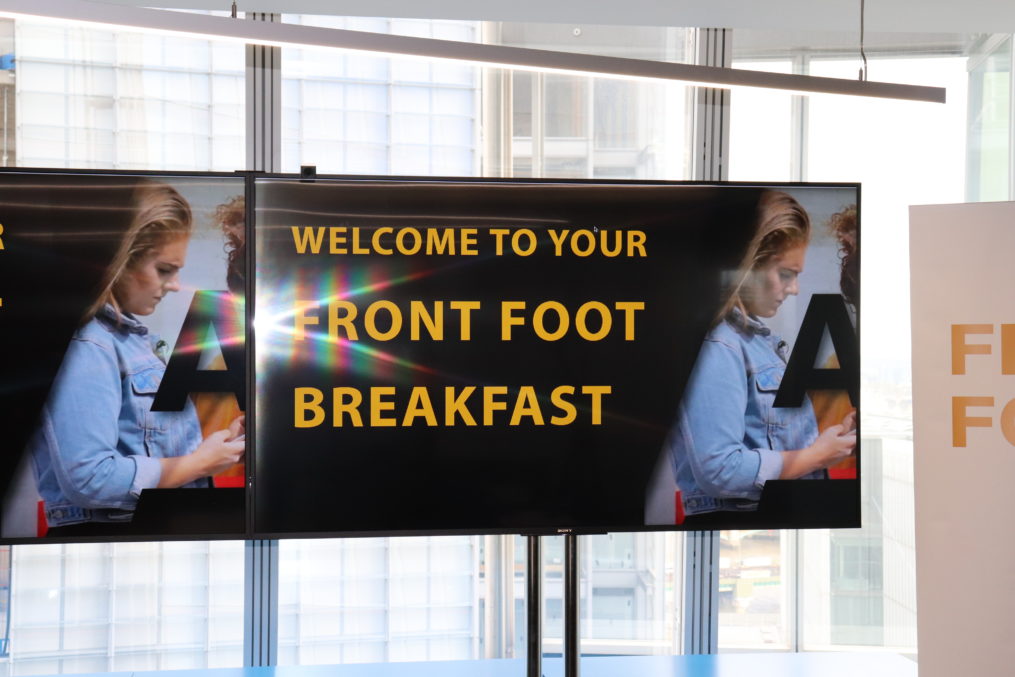Already a member? Sign in below

On the morning of Thursday 25th April, members of the industry’s Front Foot network came together to work out a path forward for restoring public trust in advertising.
As our Trust Report has demonstrated, there has been a long-term decline in overall public favourability towards advertising, with only a quarter (25%) of the public expressing favourability towards advertising in 2018 compared to 50% in the early ’90s.
Advertising Association chief executive Stephen Woodford opened the morning by putting the scale of the problem in context, noting that only cross-industry collaboration will restore public trust in advertising:
“This builds very much on an event we had last October where we first started talking about the Trust research that we’d done. [Events like this] are relatively rare to have forums like this, cross-industry, where we have competitors, different sectors, brands, media, agencies, sitting together to work on a problem.”
Credos director Karen Fraser similarly noted that as a result of the UK industry undertaking what may be “the biggest piece of work on trust in advertising in the world”, UK advertisers and brands have been galvanised into action.
Front Foot chairman Mark Evans, who has made restoring trust in advertising one of the core tenets of his tenure, set out the scope of the work undertaken since that October breakfast: The previous event saw Front Foot members come together to discuss potential solutions to the issue of Trust more generally. This time, the approach was much more specific, with groups attempting to find solutions to the issue of advertising bombardment.
“At that session we had some working groups where we reflected on that research, what does it mean, what does it imply. That fed some really valuable outputs into the process that we took forward. I think Front Foot should be about active contribution.
“Since that moment, the first half of this year has really been about providing visibility around the trust agenda, and it’s travelled really far and wide. For those at LEAD, you saw that was the lead message, particularly through Keith Weed. In [his] word’s, it’s ‘trust or bust'”.
At LEAD 2019, Keith had noted that brands’ relationship with their audiences were paramount, and that since advertising is often the primary touchpoint with consumers that those relationships need to be healthy. Karen echoed that sentiment at the breakfast event, saying:
“People have told us there does seem to be more advertising than there has ever been before. It’s easier to advertise, it’s cheaper to advertise, and there’s a great deal more of it around in many different forms. People told us about their negative feelings towards the over-commercialisation of our living environment.”
There was an acknowledgement among the speakers and the attendees that the issue of trust isn’t one that can be solved overnight. It will take a lot of collaborative effort to restore public favourability towards advertising. Mark, though, is optimistic it can be done, even if we have to face some unpalatable truths along the way:
“Last time round some of the issues raised – not all of them comfortable – were ‘how do we reward the right behaviour?’ Where’s the win-win, how do we make this an everyone gains scenario, particularly around frequency of advertising. I think the contribution that comes out of this session will flow directly into the next stage of work.
To get involved in the work around restoring public trust in advertising, download our Trust report here.
Already a member? Sign in below
If your company is already a member, register your email address now to be able to access our exclusive member-only content.
If your company would like to become a member, please visit our Front Foot page for more details.